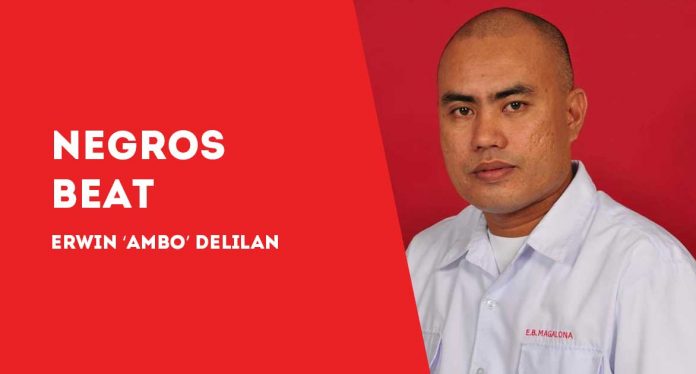
By ERWIN ‘AMBO’ DELILAN
THE REGION-WIDE search is on for the next generation (nextgen) of farmers in Region 6 / Western Visayas.
The Agriculture Training Institute (ATI) of the Department of Agriculture (DA) Region 6 recently launched a youth scholarship (internship) grant on organic agriculture.
Mary Ann Ramos, head of DA-6’s ATI , said the program, sanctioned by the National Organic Agriculture Program (NOAP), is meant to entice youths in the region to develop love and passion for farming or agriculture in general.
She lamentes that most of the youths now prefer to work as call center agents or venture to any urban jobs.
Losing interest in agriculture is deemed “looming crisis” in Western Visayas. The Agriculture department admits to having difficulty searching for replacements to aging farmers.
ATI’s internship program, Ramos said, is a kickstart to look for viable solutions to this pressing concern that also threatens the region’s food security.
However, to qualify to this program, the parents of an applicant aged 18 to 35 years old must have a piece of land.
Applicants are not only limited to graduates of agriculture or related courses. Even out-of-school-youths or graduates of any courses are welcome to apply.
Once admitted, the scholars will undergo a comprehensive training on organic farming in different ATI accredited Learning Sites for Agriculture (LSA) in the region for nine months.
Upon completion, scholars required to present proposals with innovation(s) on agriculture in their own family farm.
‘PAGKAON’ SCHOLARS
Aside from the internship program on organic agriculture, DA-6 also offers academic scholarship for sons and daughters of farmers in the region provided, however, that they take up agriculture or related courses.
In Negros Occidental province, Karen Dinsay, head of the the provincial scholarship division, said they have the same mission – to breed “nextgen” farmers.
Thru the Pagkaon (Food) Scholarship Program introduced in 1998, the provincial government envisions to create a pool of young and dedicated farmers who will continue to provide food for Negrenses.
But those qualified under “Pagkaon” are only dependents of rice farmers, sugarcane workers, livestock and poultry raisers, and fisherfolks in Negros Occidental. They’re free to enroll in any state universities and colleges across the country.
“Pagkaon” scholars, however, are only required to take up agriculture or related courses in preparation to inheriting the farming chores from their aging ascendants.
The provincial government shoulders their monthly allowance, board and lodging, books and thesis expenses, and review for the board exam.
For 26 years already, Dinsay said “Pagkaon” had produced many agriculturists, agriculture technicians, fishery technicians, and doctors of veterinary medicines, among others. But their number is still not enough to fill-in the possible gap to be caused by retiring farmers in the province.
The local government of Negros Occidental needs more agriculture scholars.
‘DAR-TO-DOOR’
Five years ago, the province also tied up with a private institution, Catholic Ming Yuan College (CMYC) in Murcia, a private institution, for an agriculture scholarship program.
The “Pagkaon” scholars at CMYC are also being offered to take up master’s studies in Taiwan.
At present, the local government of Negros Occidental is sending 10 of its agriculture scholars from both CMYC and Central Philippines State University (CPSU) in Kabankalan City to Taiwan for further studies.
Meanwhile, the Department of Agrarian Reform (DAR) during the time of Secretary John Castriciones launched the program “DAR-to-Door” aimed at improving food security in the country by providing lots to those who wanted to venture into agriculture.
In line with then-President Rodrigo Duterte’s directive to fast-track land distribution under the Comprehensive Agrarian Reform Program (CARP), DAR offered free land to anyone who wanted to take up agriculture or related courses.
New agri graduates shall then be awarded, the most three hectares of land, so long as they meet the qualifications and secure the needed requirements.
But those eligible for this program are students who graduated with a degree in agriculture from schools recognized by the Commission on Higher Education (CHED), and they must also be landless, and their parents must not be applicants or beneficiaries of other agrarian reform programs.
Likewise, they must also be residents of the municipality or city where the land is located.
Lucrecia Taberna Sumayo, assistant regional director of DAR-6, saidthe program is in effect as along as there are government-owned land available for redistribution.
‘GOLDEN FARMERS’
A week of reading on this very compelling issue led me to conclude that aging farmers or the “golden farmers” (aged 50 to 59 years old) are valuable indeed.
Their exit from farmlands sooner or later, however, will ring a bell for a critical shortage of the “nextgen” farmers.
Agri experts say the “next agri crisis” is set to unfold 10 to 12 years from now.
In this, what is threatened here is not just our rice sufficiency but our collective dream of having food security.
God bless the Philippines!/PN



